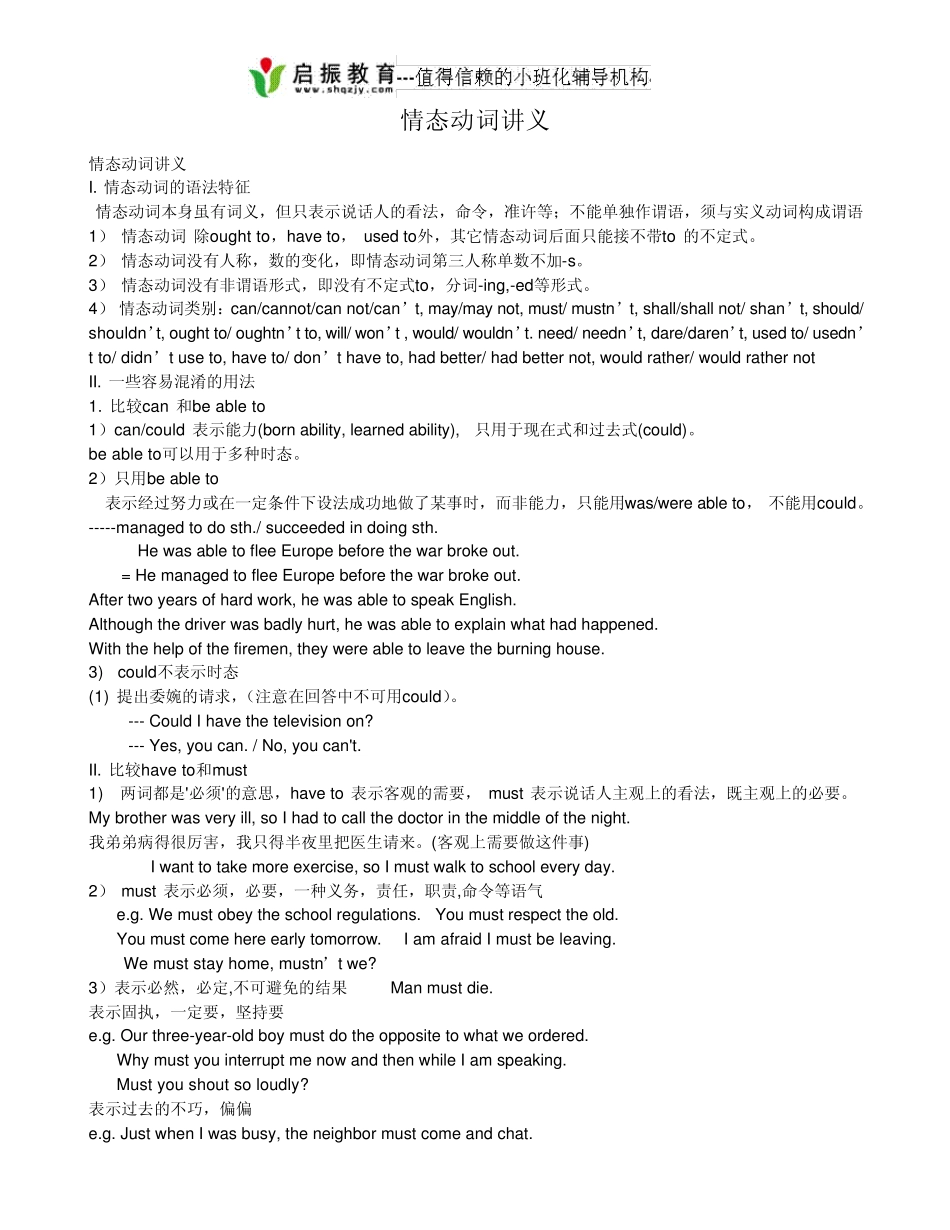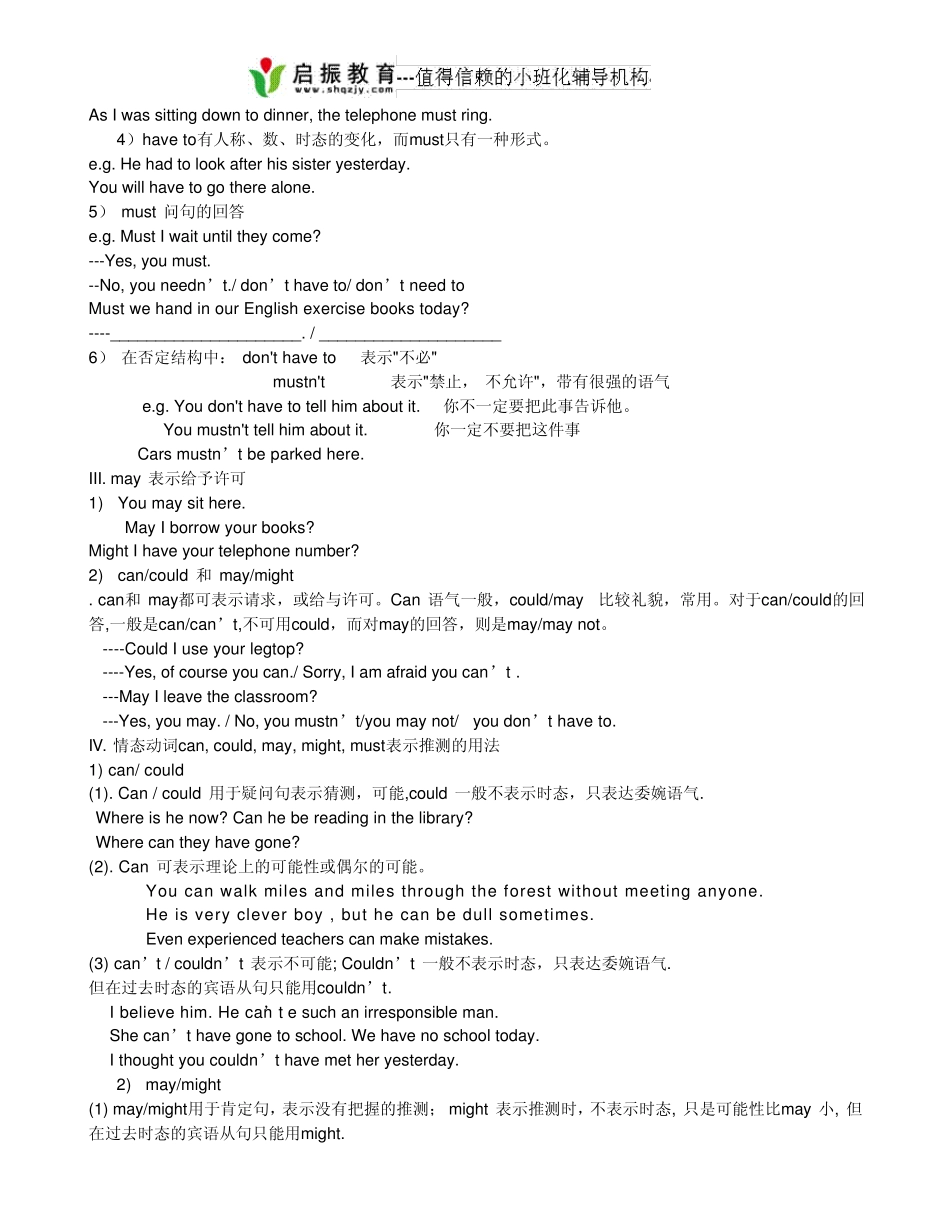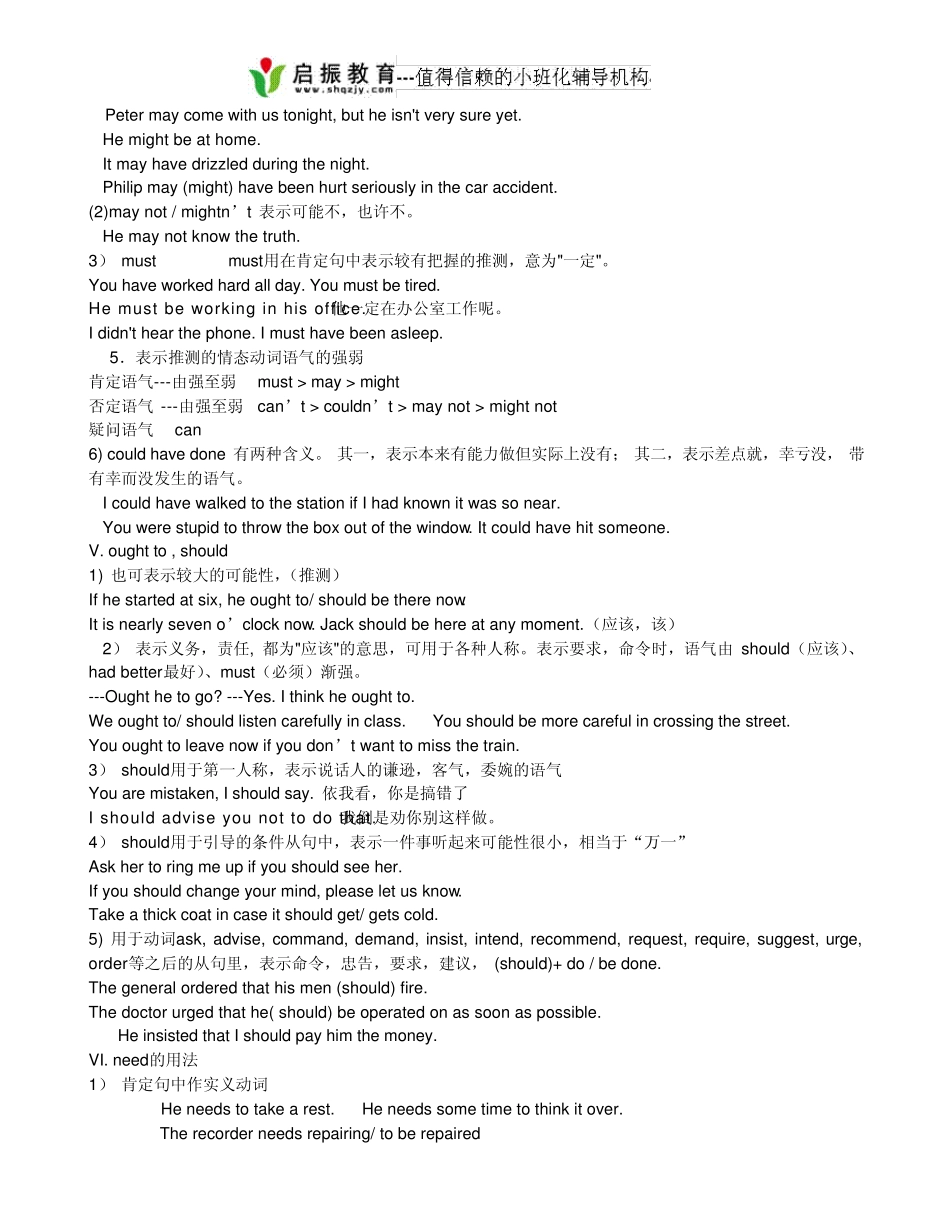情态动词讲义 情态动词讲义 I. 情态动词的语法特征 情态动词本身虽有词义,但只表示说话人的看法,命令,准许等;不能单独作谓语,须与实义动词构成谓语 1) 情态动词 除ought to,have to, used to外,其它情态动词后面只能接不带to 的不定式。 2) 情态动词没有人称,数的变化,即情态动词第三人称单数不加-s。 3) 情态动词没有非谓语形式,即没有不定式to,分词-ing,-ed等形式。 4) 情态动词类别:can/cannot/can not/can’t, may/may not, must/ mustn’t, shall/shall not/ shan’t, should/ shouldn’t, ought to/ oughtn’t to, will/ won’t , would/ wouldn’t. need/ needn’t, dare/daren’t, used to/ usedn’t to/ didn’t use to, have to/ don’t have to, had better/ had better not, would rather/ would rather not II. 一些容易混淆的用法 1. 比较can 和be able to 1)can/could 表示能力(born ability, learned ability), 只用于现在式和过去式(could)。 be able to可以用于多种时态。 2)只用be able to 表示经过努力或在一定条件下设法成功地做了某事时,而非能力,只能用was/were able to, 不能用could。-----managed to do sth./ succeeded in doing sth. He was able to flee Europe before the war broke out. = He managed to flee Europe before the war broke out. After two years of hard work, he was able to speak English. Although the driver was badly hurt, he was able to explain what had happened. With the help of the firemen, they were able to leave the burning house. 3) could不表示时态 (1) 提出委婉的请求,(注意在回答中不可用could)。 --- Could I have the television on? --- Yes, you can. / No, you can't. II. 比较have to和must 1) 两词都是'必须'的意思,have to 表示客观的需要, must 表示说话人主观上的看法,既主观上的必要。 My brother was very ill, so I had to call the doctor in the middle of the night. 我弟弟病得很厉害,我只得半夜里把医生请来。(客观上需要做这件事) I want to take more exercise, so I must walk to school...


